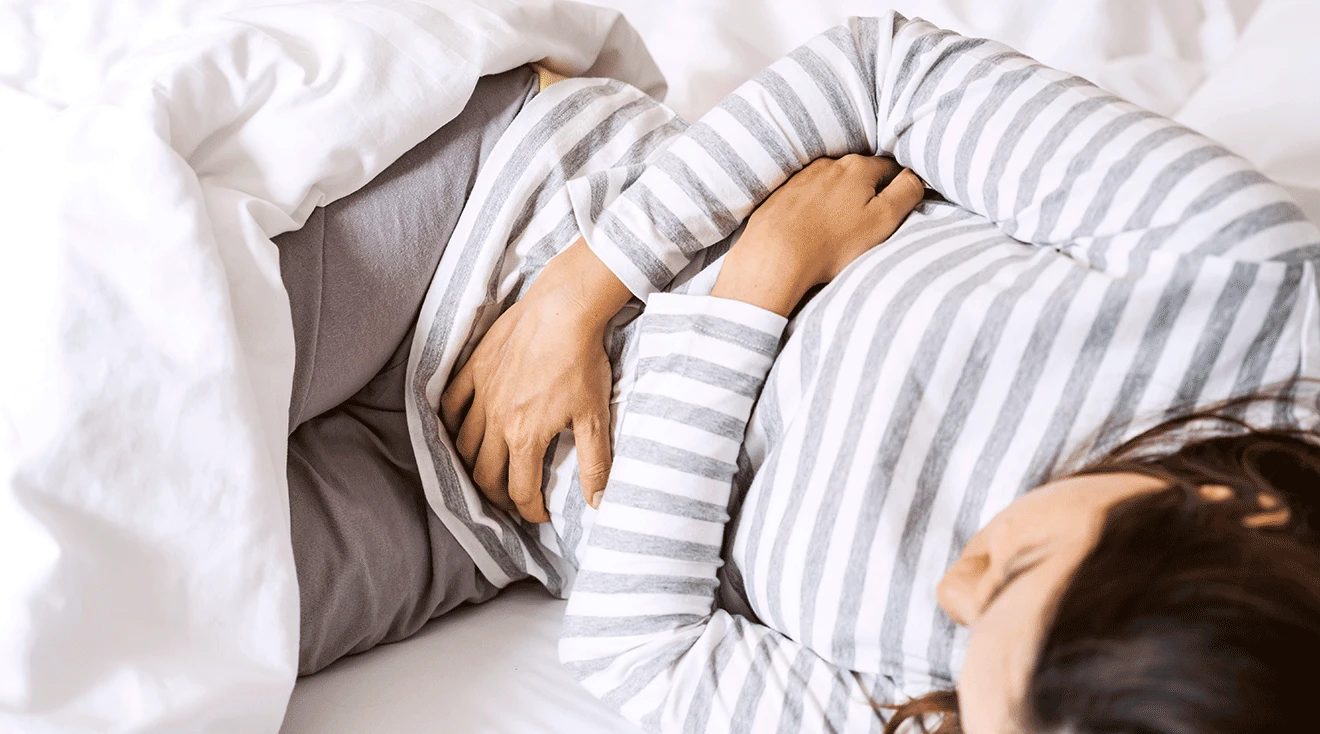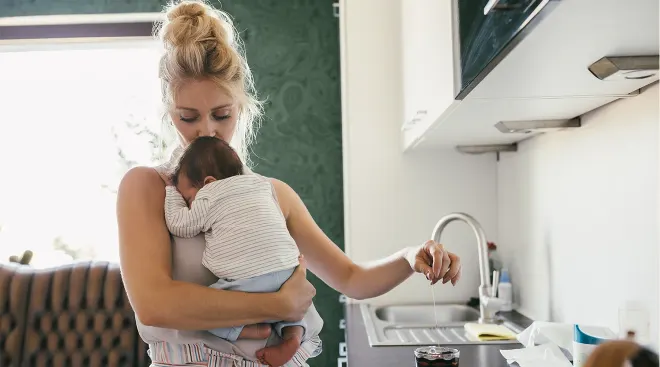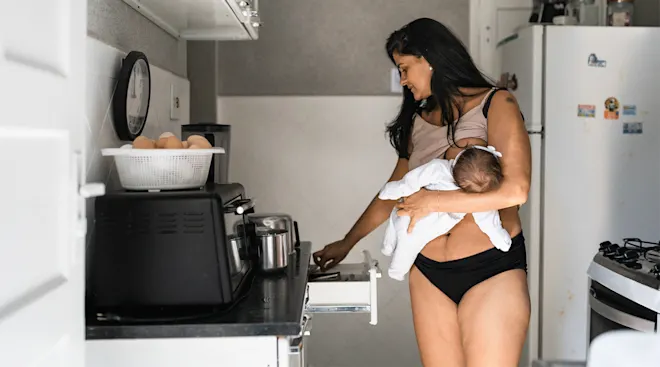Postpartum Cramping: What's Normal (and What's Not)
The postpartum period can bring a lot of unexpected symptoms—some more intense than others. One of the most common things you might experience is postpartum cramping. While it’s uncomfortable, it’s usually nothing to worry about: In fact, it’s one way your body heals itself after birth. Keep reading to find out why postpartum cramping happens, how long it usually lasts and how to find relief—plus, when to check in with your doctor.
Postpartum cramping is a symptom many people experience after giving birth as a result of uterine involution, aka the natural process of your uterus returning to its pre-pregnancy state. The cramps might feel like mild labor pains or menstrual cramps, and they often intensify while you’re breastfeeding. They might last a few minutes and then gradually ease.
You can experience postpartum cramping whether you had a vaginal birth or c-section, although with a c-section, you might have additional pain. “Pain after c-section may be a bit more intense as the mom is dealing with cramping from uterine involution and pain from us operating in her abdomen,” says Danielle Wright-Terrell, MD, an ob-gyn for the US Air Force and CEO of HONEY, a postpartum support platform.
Again, postpartum cramps are typically caused by uterine involution—contractions that help the uterus shrink back to its original size and reduce postpartum bleeding, says Ellen Smead, CNM, a certified nurse-midwife at Pediatrix Medical Group in Atlanta. These contractions compress the blood vessels in the uterus, which prevents you from losing too much blood, according to Cleveland Clinic.
During uterine involution, your uterus contracts from roughly the size of a grapefruit to the size of a pear, notes Cleveland Clinic. “The uterus is capable of doing this amazing thing during pregnancy—growing in size and cell number to accommodate an entirely new organ, the placenta, and a new human,” says Smead. “Following the birth, it must squeeze back on itself to prevent bleeding too much and facilitate the process of involution. Although it’s uncomfortable, it serves a purpose for the health and well-being of the birthing person.”
Postpartum cramps during breastfeeding could feel more intense, says Smead. This is due to the flood of oxytocin, which causes uterine contractions. As a result, your uterus is likely to shrink faster.
Sometimes, postpartum cramping can be caused by an infection such as postpartum endometritis, which affects the uterine lining, notes Smead. “The cramping associated with this infection will worsen over time as opposed to getting better,” she says.
While everyone’s postpartum experience is different, postpartum cramps usually become much milder and easier to manage by the third day after birth, according to Cleveland Clinic. That said, it can take six weeks for the uterus to return to its pre-pregnancy size, says Wright-Terrell, so milder symptoms could persist.
If it’s not your first time giving birth, you could feel postpartum cramps longer or more intensely, says Smead. “Some people describe the cramping as more painful [and] others say it may last a little longer than during their previous postpartum period,” she says.
There are a few things you can do to help this healing period feel more comfortable, according to the experts:
- Use a heating pad on your lower abdomen
- Apply a warm compress to your abdomen
- Use a belly band for extra support
- Take a warm shower
- Use a pillow to apply gentle pressure to your abdomen
- Drink a warm, soothing tea
- Take Tylenol or ibuprofen, “only as prescribed by your ob-gyn,” notes Wright-Terrell
If you have any of the following symptoms, be sure to reach out to your provider, experts say:
- A fever of 100.4 degrees or higher
- Flu-like, full-body aches
- Postpartum cramping that is particularly intense or gets worse over time
- Abnormal vaginal discharge
- Excessive vaginal bleeding (going through more than one pad per hour)
- Passing large blood clots
- If you’ve had a c-section, “spreading areas of redness, hardness or drainage” should be evaluated immediately, says Wright-Terrell.
The bottom line? Postpartum cramping is part of your body’s healing process, and the discomfort should subside soon. In the meantime, at-home care like using a heating pad and taking warm showers should ease some of the pain. But if your symptoms intensify or last longer than expected, be sure to reach out to your provider.
Please note: The Bump and the materials and information it contains are not intended to, and do not constitute, medical or other health advice or diagnosis and should not be used as such. You should always consult with a qualified physician or health professional about your specific circumstances.
Plus, more from The Bump:
Ellen Smead, CNM, is a certified nurse-midwife at Pediatrix Medical Group in Atlanta. She graduated from Emory University in 2011 and is an advanced practice midwife with the American Midwifery Certification Board.
Danielle Wright-Terrell, MD, is an ob-gyn for the US Air Force and CEO of HONEY, a postpartum support platform for moms and dads. She earned her medical degree and completed her residency at the Medical University of South Carolina, where she specialized in the fourth trimester after experiencing gaps in her own postpartum care.
Cleveland Clinic, Uterus Involution, April 2022
Learn how we ensure the accuracy of our content through our editorial and medical review process.
Navigate forward to interact with the calendar and select a date. Press the question mark key to get the keyboard shortcuts for changing dates.





















































